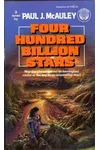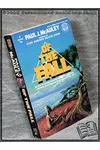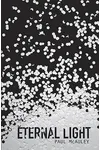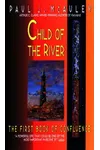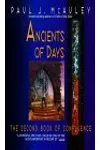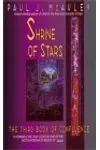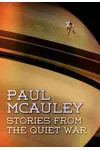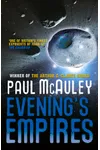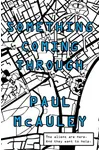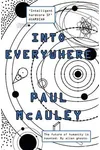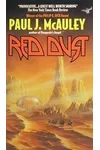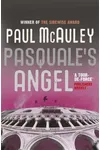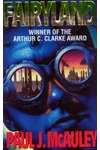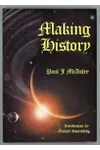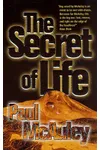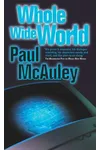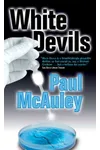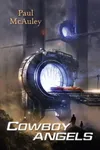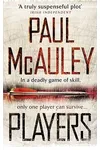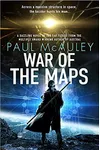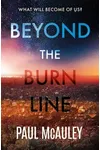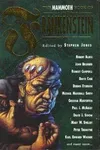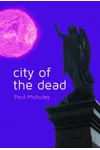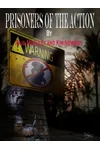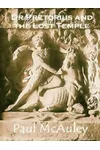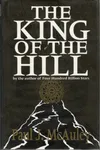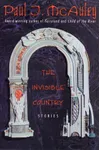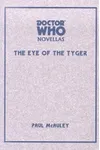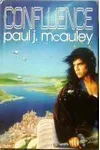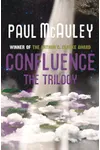Picture a British botanist spinning tales of far-flung galaxies and biotech wonders—meet Paul J. McAuley! Born in 1955, this science fiction maestro blends his scientific expertise with gripping narratives, crafting hard sci-fi that’s as thought-provoking as it is thrilling. From award-winning novels to techno-thrillers, McAuley’s work explores humanity’s future with a biologist’s precision and a storyteller’s flair.
With over twenty novels and numerous short stories, McAuley has carved a unique niche in speculative fiction. His tales of space exploration, genetic engineering, and alternate realities have earned him prestigious accolades like the Philip K. Dick and Arthur C. Clarke Awards. Ready to dive into his universe? Let’s explore the life and legacy of this sci-fi visionary!
The Making of Paul J. McAuley
Born on April 23, 1955, in Oxford, England, Paul J. McAuley grew up with a passion for science. He studied biology, earning a doctorate in botany, and worked as a research biologist at universities like Oxford and UCLA. His research focused on symbioses between algae and marine life, which later infused his fiction with scientific authenticity. By the 1980s, McAuley began writing, debuting with a short story in Asimov’s Science Fiction. His transition from academia to full-time writing marked the start of a prolific career that would redefine hard science fiction.
McAuley’s scientific background shapes his storytelling, grounding fantastical concepts in plausible science. His early love for sci-fi classics and his time as a “resident alien” in Los Angeles fueled his creative spark, leading to his first novel in 1988. This blend of rigorous science and imaginative worlds set him apart in the genre.
Paul J. McAuley’s Unforgettable Stories
McAuley’s debut novel, Four Hundred Billion Stars (1988), a far-future space opera, won the Philip K. Dick Award for its vivid depiction of interstellar exploration. The story follows telepath Dorothy Yoshida unraveling mysteries on a strange planet, showcasing McAuley’s knack for blending science and suspense. Its sequel, Eternal Light, and the related Of the Fall (also known as Secret Harmonies) continued this epic saga, cementing his reputation.
Fairyland (1995), a cyberpunk masterpiece, won both the Arthur C. Clarke and John W. Campbell Memorial Awards. Set in a dystopian Europe, it explores genetically engineered “dolls” and nanotechnology, weaving a chilling yet captivating narrative. The Confluence trilogy (1997–1999) transports readers ten million years into the future, using Frank J. Tipler’s Omega Point Theory to explore a universe striving for complexity and consciousness. More recently, Austral (2017) tackles climate change and genetic engineering in a near-future Antarctica, blending adventure with social commentary.
McAuley’s style is marked by meticulous world-building and themes of biotechnology, alternate histories, and space travel. His techno-thrillers, like The Secret of Life (2001) and Whole Wide World (2002), delve into near-future conspiracies, showcasing his versatility. Whether crafting far-future epics or grounded thrillers, McAuley’s work is both intellectually stimulating and emotionally resonant.
Why Paul J. McAuley Matters
Paul J. McAuley’s impact on science fiction lies in his ability to merge cutting-edge science with human stories. His novels tackle pressing issues—climate change, genetic ethics, and societal divides—making them strikingly relevant. By grounding speculative futures in real science, he inspires readers to ponder humanity’s trajectory. His awards, including the Sidewise Award for Pasquale’s Angel, reflect his influence across genres, from hard sci-fi to alternate history.
McAuley’s work also resonates culturally, with Austral optioned for television, signaling his growing reach. His Twitter presence as UnlikelyWorlds, once listed among Time magazine’s top 140 tweeters, shows his passion for sharing scientific wonders, connecting with fans in a digital age.
About Paul J. McAuley
- Born: April 23, 1955, in Oxford, England
- Key Works: Four Hundred Billion Stars, Fairyland, Confluence trilogy, Austral
- Awards: Philip K. Dick Award (1988), Arthur C. Clarke Award (1996), John W. Campbell Memorial Award (1997), Sidewise Award, British Fantasy Award
- Fun Fact: A former botanist, he researched algae symbioses before becoming a full-time writer.
Snag Fairyland or Austral and dive into Paul J. McAuley’s thrilling blend of hard sci-fi and human drama!
